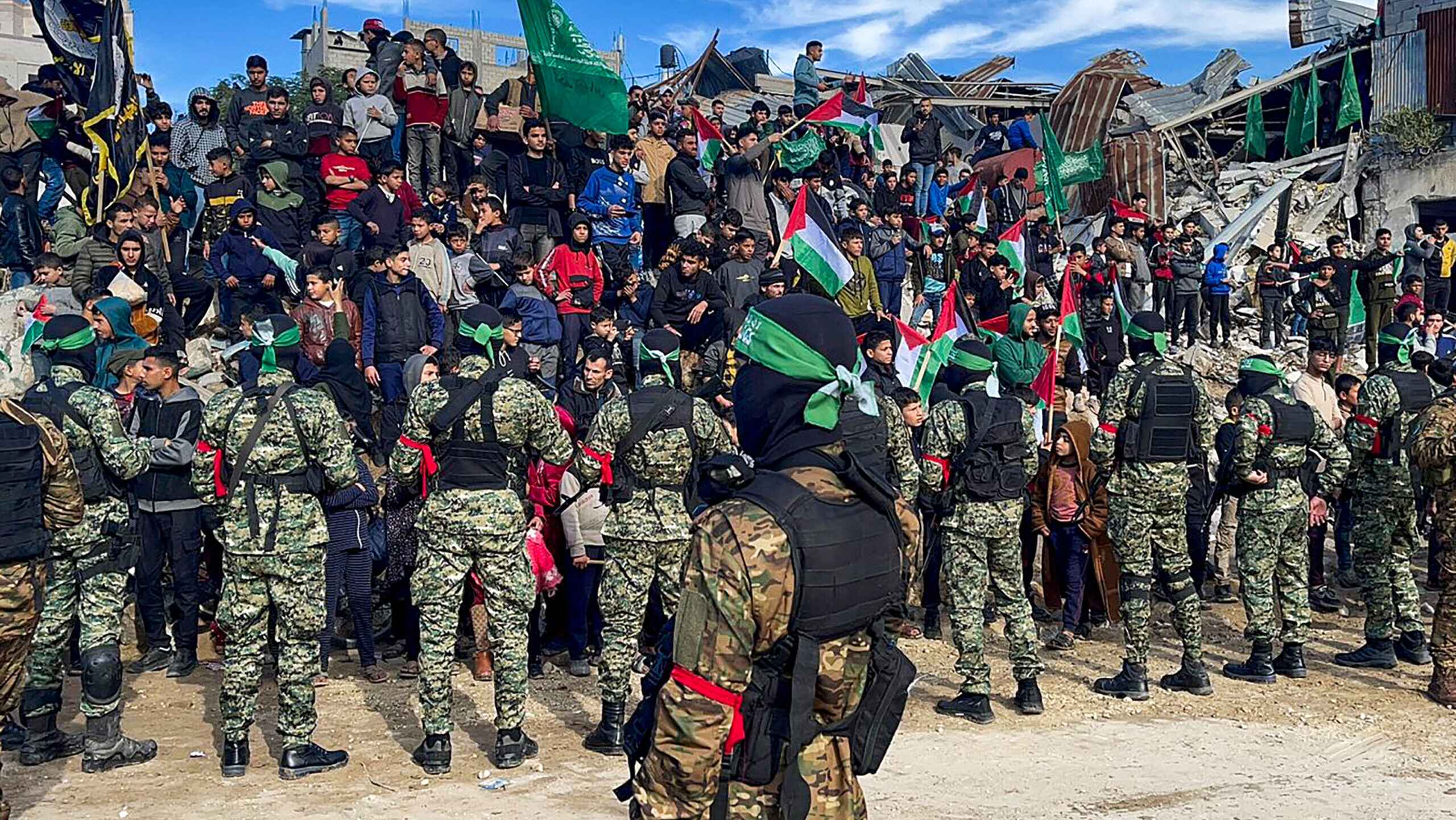OPINION: Hamas Should Not Be Calling the Shots, Global Response Needed
Hamas drags out hostage releases in a lopsided prisoner deal, causing psychological torment for families and emboldening future crises, as international efforts falt
Hamas, the wicked terrorist organization, has done it again. It is toying with the hostages, their families, Israel, and the world. Over a period of six weeks, a small number of hostages will be trickled out weekly. Their identities, and who among them is alive and who is dead, will remain unknown until the last minute, leaving families in agonizing suspense. The terrorist group will issue last-minute demands and cause delays to extend the psychological torment in this lopsided deal. In a grotesque twist, the first three hostages released were issued certificates as though they had won a minor award at school or in summer camp.
This is not a negotiation; it is extortion and an elaborate form of psychological warfare.
The current ceasefire deal with Israel will bring back 33 hostages, including two dual US-Israeli nationals, out of nearly 100 hostages over six weeks. In exchange, it will release 734 terrorists in this first phase alone, along with another 1,167 individuals who were taken into custody from Gaza.
One of the first public statements President Donald Trump made upon taking office on January 20 was to express doubt that the ceasefire deal would hold. His skepticism underscored the fragility of the agreement and the challenges posed by Hamas’ manipulative tactics.
This uneven deal not only frees convicted felons, some of whom have served multiple sentences in Israeli jails, but it also inflicts renewed anguish on victims’ families. They are forced to relive the trauma of losing their loved ones as they watch the perpetrators walk free. Many feel as though they are being held hostage all over again. The situation is profoundly unjust.
Take Hillel Fuld, an American-born high-tech adviser whose brother Ari was killed in 2018 by Khalil Yousef Jabarin, one of the prisoners included in this exchange. Fuld said: “Much like many things with this conflict, it is super complex and, from my point of view, is both terrible and beautiful simultaneously. As far as the family, this is, of course, painful, and there is no user guide on how to feel in a situation like this. One thing is for sure: Not enough attention is being paid to the poor families whose loved ones were murdered and who are now seeing the murderers set free.”
This holiday season, give to:
Truth and understanding
The Media Line's intrepid correspondents are in Israel, Gaza, Lebanon, Syria and Pakistan providing first-person reporting.
They all said they cover it.
We see it.
We report with just one agenda: the truth.


The prisoners set to be released include Ahmed Barghouti, a close aide to Marwan Barghouti, an Al-Aqsa Martyrs’ Brigade commander convicted on multiple counts of murder and attempted murder. Also on the list is Nael Barghouti, the longest-serving Palestinian prisoner in Israeli jails. Originally sentenced to life plus 18 years for the 1978 murder of Israeli bus driver Mordechai Yekuel, Barghouti was released in 2011 as part of the Gilad Shalit prisoner swap but rearrested in 2014 for violating the terms of his release.
On October 7, Hamas reached new depths of barbarity, and since then, they have compounded their evil by taunting the world with videos of hostages while helpless families and negotiators watch in anguish. Even as the first three hostages were set to be freed, Hamas withheld their names until the last moment—a blatant violation of the ceasefire agreement. Israel doesn’t even know the names of the hostages who will be returned dead.
This negotiation has taken over a year, with Qatar, Egypt, Saudi Arabia, and two US administrations attempting to mediate a deal to free some of the hostages. These hostages have endured unimaginable conditions, living in underground tunnels deprived of food and oxygen, subjected to torture, and, in some cases, sexual abuse. Hamas has turned this crisis into a grotesque display of public relations stunts, tormenting Israelis and the world with their masterful manipulation of negotiations.
This is not the first time hostage negotiations have sparked controversy. In December 2022, the US traded Russian arms dealer Viktor Bout for WNBA star Brittney Griner. The deal drew significant criticism for encouraging adversaries to take hostages in pursuit of leverage. Similarly, the 1980s Iran-Contra affair saw the US trade over 1,500 missiles to Iran in exchange for three hostages. Not only did this failed deal encourage further hostage-taking, but it also perpetuated a cycle of violence. But notably, neither exchange involved releasing dozens of terrorists and murderers for each hostage, as is happening now.
In a moral world, prisoners with blood on their hands should never be offered in exchange for civilians. Such actions embolden terrorists, ensuring that future hostage crises will be even more difficult to resolve. We are setting up a scenario that is doomed to fail.
Where is the international community? All that is being done now paves the way for more hostage crises, with groups like Hamas empowered to dictate outcomes. There must be global standards for hostage negotiations that prevent the kind of blackmail currently playing out. Intimidation should not work.
To address the exploitation of hostages as bargaining chips, the international community must establish binding frameworks for negotiations. A multinational body should oversee these situations, enforcing rules that limit the ratio of prisoner exchanges and bar the release of individuals convicted of murder or terrorism.
Governments must also commit to unified protocols that refuse to entertain dangerous, precedent-setting demands. When hostages are taken, the immediate response should include freezing assets and imposing sanctions on the groups involved and their sponsors. This would cut off the financial incentives that often drive hostage-taking.
Additionally, international donors providing aid for reconstruction in regions controlled by groups like Hamas must ensure complete transparency. Independent audits and monitoring by neutral organizations should guarantee that aid reaches civilians rather than funding terror infrastructure. By implementing these measures, the global community can strip terrorist organizations of the leverage they gain through hostages while protecting the safety and dignity of innocent lives.
Hamas should not be calling the shots. This system is flawed. Only through decisive, coordinated action can we prevent a future where this cycle of terror and extortion repeats itself endlessly.


